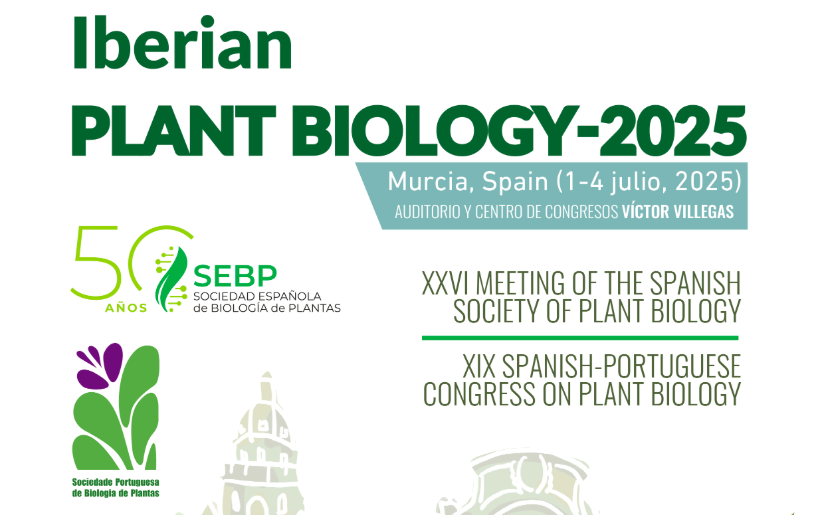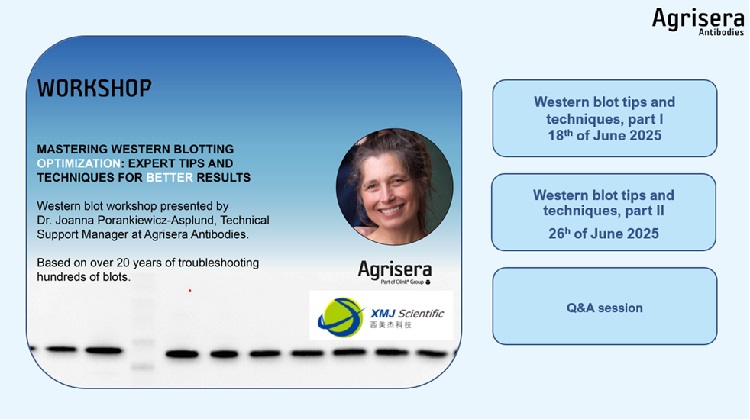Light-induced structural changes in thylakoid membranes, revisited in the recent publication
|
|
|
|
| Agrisera supported 20th Congress on Molecular Plant-Microbe Interactions, which took place between 13th-17th of July in Cologne, Germany. Over the course of 5 days, the congress was attended by over 1200 attendees for cutting-edge research and networking in the field of plant-microbe interactions. Two Agrisera Best Poster Awards were awarded and participants could collect hard copies of Agrisera Educational Posters and Agrisera catalog. |
|

| A very interesting publication by Li et al. A Photophosphorylation Nanobot for Restoring Anabolism of Myocardial Injury, was published in The Journal of the American Chemical Society, in June 2025 issue. Considering high risk of mortality worldwide and due to limited capacity for self-repair after myocardial injury, self propelled nanobots which can target the heart and improve intracellular ATP concentration which leads to restoration of cellular metabolism and repair of myocardial injury, are a promise for the future treatment. The following Agrisera antibodies to photosynthetic proteins were used to verify this approach: |
|
| This week, Agrisera supported the following conferences: Iberian Plant Biology 2025, held between 1st-4th of July, in Murcia, Spain. This meeting is organized on behalf of the Spanish and Portuguese Plant Biology Societies was a celebration of the 50th anniversary of the Spanish Society of Plant Biology and XIX Spanish-Portuguese congress on plant Biology. The motto of the meeting will be "Plants for a sustainable world". Plant Nitric Oxide International Meeting (PNO), held between 9th-11th of July, online. The advances in the biology and chemistry of reactive nitrogen species (RNS) were the focus of this meeting. The following topics were covered: Nitric oxide (NO) and its interaction with other reactive species, the physiological and molecular roles of RNS in plants and the crosstalk between reactive oxygen species (ROS) and RNS. |   |
Between July 26th - 30th, Agrisera is going to be present at the Plant Biology 2025, Milwaukee, USA. The conference is organized each year by American Society of Plant Biologists (ASPB). Sales Manager Fanny Sundelin and Product Specialist Isabel Salén are representing Agrisera at the meeting. You are welcome to come by Agrisera booth and talk antibodies with them or just to say hello. Participants can pick up free hard copies of Agrisera's Educational Posters, prepared in collaboration with scientists in the field of photosynthesis and epigenetics, as well as the Agrisera product catalog and Agrisera Western blot troubleshooting guide. We look forward to seeing you there!
|  |


| Agrisera's Educational Poster number 9 is the second poster in our collection that focuses on methods, and in this case: Western blotting. The content was developed based on Agrisera's 25 years of troubleshooting hundreds of blots each year. The contents were transferred into the graphical representation by Dr. Dmitry Shevela (SciGrafik, Sweden).
|
|
 | ||
| In July 2024, Agrisera and Olink entered an exciting new chapter by becoming part of the Thermo Fisher Scientific family. As we continue to integrate into this global organization, we will be updating our logo to reflect this new affiliation. Our dedication to serving the scientific community remains unchanged. I will continue in my role as CEO, and our experienced and passionate team will remain fully committed to supporting you. Our online store continues to operate as usual, with a strong and ongoing focus on advancing plant science research. We are also actively working to expand our product portfolio with innovative, high-quality antibodies—honoring Agrisera’s longstanding legacy. Looking ahead, we remain committed to maintaining the rigorous quality standards you have come to expect from us. You can continue to rely on the trusted products and services that have defined Agrisera over the years. Joining Thermo Fisher Scientific presents a valuable opportunity for growth and innovation. We believe this transition will bring meaningful benefits to our customers, partners, and the broader scientific community. Should you have any questions or wish to discuss what this change may mean for you, please feel free to contact me directly. We sincerely appreciate your continued trust and look forward to building the future together. Best regards, Erika Gelfgren, CEO, Agrisera AB |